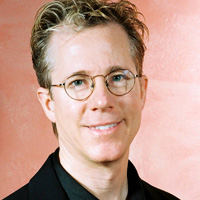Why must we die? Or perhaps more precisely, why is the human life span limited to just 70 years on average? This was, until recently, a philosophical question. But today biotech researchers in the Bay Area are exploring this question with the stated goal of not just treating and preventing disease but vastly extending the human life span. So from a scientific perspective the question becomes: Is there any physical, chemical or technical reason why we must die?
After all, many other species live much longer than humans. Galápagos tortoises routinely live more than 120 years. Bowhead Whales have been reliably recorded to live more than 200 years. And many species of plants are known to live for thousands of years.
A number of noted authors and futurists -- Ray Kurzweil perhaps best known among them -- assert that today scientists are less than a single human lifetime away from the ability to extend the human life span to hundreds of years and perhaps even indefinitely. The result: the end of death. How is this possible? From a strictly evolutionary standpoint there is no need for us to live beyond the age of procreation and child rearing. Survival of our species -- the key criteria driving natural evolution -- simply does not require us to live very long. But within a few decades advancements in genetic and bio engineering will enable human beings to become the first species on planet Earth to wrestle the evolutionary controls from nature and take them into our own hands.
From their work at UC Berkeley on portions of our DNA that play a role in controlling cell death, to Gladstone Institutes' work on stems cells designed to repair human heart and brain tissue, scientists are moving inexorably toward acquiring the technology that will allow them to stop and even reverse the aging process.
According to Kurzweil and others, if you are under 20 years of age today, it is very likely you will live long enough to see the end of death. How will the dramatic extension of human life affect relationships, society, commerce, government? Will it change what it means to be human? These are the questions we must ask ourselves before we create Generation Immortal.
